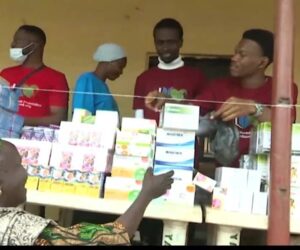1
…Experts Worry Over Reduced Investment, Increased Unemployment
LAGOS – Nigeria’s fragile economic recovery could face new headwinds if the slowdown in private sector credit growth persists, economists have warned.
They say the recent deceleration in bank lending to businesses and households poses risks to investment, consumption, and overall GDP expansion at a time when the economy is still grappling with structural challenges and the aftershocks of policy reforms.
Private sector credit—the lifeblood of economic activity—has been expanding at a much slower pace in recent months. Latest figures from the Central Bank of Nigeria (CBN) show that lending to the private sector has grown only marginally year-on-year, with some months even recording contractions.
This subdued growth is a sharp contrast to the rapid credit expansion seen in 2022 and 2023, when businesses and consumers were still flush with post-pandemic financing and lower interest rates.
Investment Plans On Hold
The credit slowdown is already impacting capital expenditure across key sectors. Manufacturers have deferred plant upgrades, infrastructure developers have slowed project rollouts, and real estate investors are shelving new developments.
“Credit is the engine oil for private investment,” said Dr. Femi Adeoye, chief economist at a Lagos-based investment advisory. “When companies can’t access affordable financing, they delay expansion plans, which in turn slows job creation and output growth. This is especially dangerous for Nigeria because private investment is a critical driver of GDP alongside consumer spending.”
The manufacturing sector, which relies heavily on working capital loans to import raw materials and maintain operations, has been particularly affected. Several industry players report that bank lending rates—often exceeding 25 percent—have made borrowing prohibitively expensive, forcing them to scale down production or seek alternative financing from the informal market at even higher costs.
On the household side, high interest rates have restricted access to credit cards, personal loans, and mortgages. This is eroding consumer purchasing power, which had already been under pressure from high inflation.
“Private consumption accounts for more than 60 percent of Nigeria’s GDP,” noted Adeoye. “When households cut back on spending because they can’t borrow to smooth consumption, it has a direct and immediate effect on overall economic activity.”
Consumer-facing businesses—from retail chains to ride-hailing operators—are reporting weaker sales and lower transaction volumes, signalling that the credit squeeze is already filtering through to the broader economy.
Policy-Driven Slowdown
Economists attribute the credit slowdown largely to the CBN’s aggressive monetary tightening cycle, which began in early 2024 to combat runaway inflation. The Monetary Policy Committee (MPC) has raised the benchmark interest rate several times, pushing borrowing costs to multi-year highs.
While these moves have been effective in curbing inflation— which fell from 24.5% in January 2025 to 22.2 percent by June—they have also reduced the appetite of banks to lend and the ability of borrowers to take on new debt.
“The CBN is walking a tightrope,” said Abuja-based macroeconomic analyst, Aisha Sule. “They need to control inflation and stabilise the naira, but they also have to be mindful that credit is the oxygen that keeps private sector activity alive. Starving the economy of credit for too long could choke growth.”
SMEs At The Sharp End
Small and medium-sized enterprises (SMEs), which account for a large share of employment in Nigeria, are among the hardest hit. Without access to affordable loans, many are struggling to pay salaries, replenish stock, or invest in technology upgrades.
A recent survey by the Lagos Chamber of Commerce and Industry found that nearly 70 percent of SMEs had seen their access to bank credit decline over the past six months. The same survey revealed that a significant number had turned to family loans, cooperative societies, or informal moneylenders—often at punishing interest rates.
If private sector credit growth remains sluggish, economists warn that Nigeria’s GDP growth projections for 2025 could be revised downward. The International Monetary Fund (IMF) currently forecasts the economy to expand by around 3.3% this year, but that figure assumes continued investment in infrastructure, manufacturing, and services.
“Credit is not just a financial statistic—it translates into machines bought, factories built, and jobs created,” said Sule. “Without it, the multiplier effect on the economy weakens, and growth slows. In the worst case, we could even see a recession if the credit freeze coincides with external shocks such as lower oil prices or weaker global demand.”
Beyond monetary policy, structural issues in Nigeria’s financial system are also contributing to weak credit growth. Many banks prefer to invest in high-yield government securities rather than lend to the private sector, viewing it as less risky. The high default rate among borrowers and weak credit reporting systems further discourage lending.
Additionally, the relatively shallow penetration of credit in Nigeria—less than 15% of GDP compared to over 50% in South Africa—means that any slowdown is felt more acutely.
Balancing Inflation Control And Growth
For now, the CBN remains committed to its inflation-first strategy, arguing that stable prices are essential for long-term economic growth. However, some analysts believe there is room for targeted measures to support lending without derailing disinflation progress.
“Policy tools such as credit guarantees for SMEs, concessional loans for critical sectors, and regulatory incentives for banks to lend to productive enterprises could help cushion the impact,” said Adeoye. “The challenge is designing these interventions in a way that doesn’t reignite inflationary pressures.”
Outlook
Most economists agree that the credit situation will remain tight through the rest of 2025, with gradual easing possible in 2026 if inflation continues to decline. Until then, businesses and consumers will have to adapt to a high-cost financing environment, relying more on retained earnings, equity injections, or alternative funding sources.
The broader concern is whether the current credit squeeze will leave lasting scars on Nigeria’s economic potential. Reduced investment in productive capacity today could mean slower growth, fewer jobs, and lower incomes tomorrow.
“This is a delicate moment for the Nigerian economy,” Sule warned. “We have made gains in stabilising the currency and lowering inflation, but if we lose momentum on growth because of weak credit, we may find ourselves back in the cycle of stagflation—low growth and high prices—which is the worst of both worlds.”








